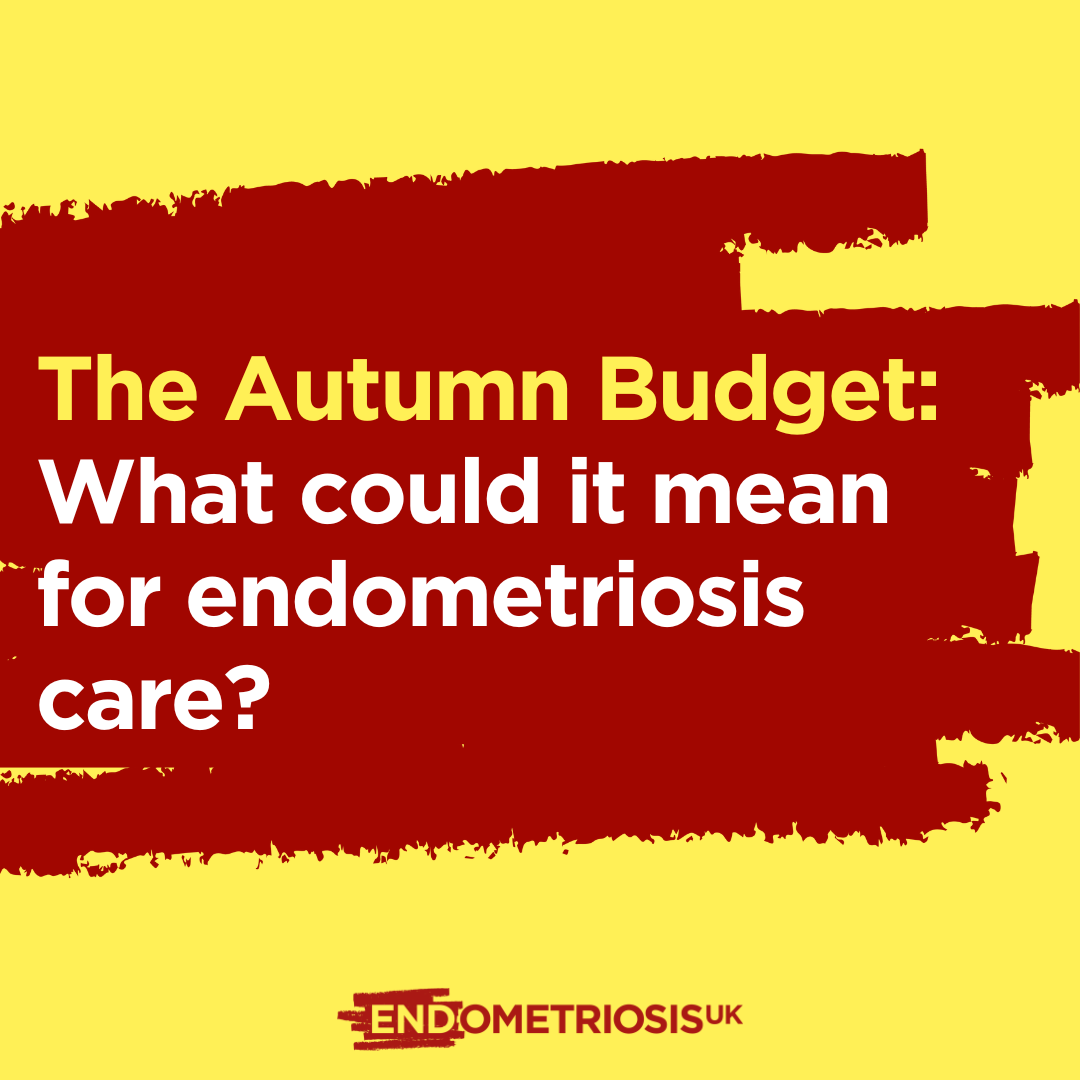This Wednesday, 30th October, Chancellor Rachel Reeves is set to deliver Labour’s First Budget in nearly 15 years. Endometriosis UK hopes the Budget “will not overlook the robust economic case for investing in menstrual healthcare”.
Faye Farthing, Head of Communications at Endometriosis UK said: “Wednesday’s Autumn Budget provides a crucial opportunity for the government to commit to investing in menstrual health, and not ignore the compelling evidence for investment.
The maths is simple and the economic case for investment has never been clearer. Endometriosis UK data earlier this year shows that half of those with a diagnosis of endometriosis had visited their GP more than ten times, and a quarter had visited A&E three or more times, before getting diagnosed. The fact that diagnosis takes an average of eight years and 10 months puts extra pressures on the NHS because patients aren’t getting the treatment they need early enough, and means talent lost from the workforce, to the detriment of the economy, as well as adding to patient suffering.
Investing in menstrual health would benefit the economy and society as a whole, on top of reducing the suffering of those living with endometriosis and other menstrual health conditions. There is a clear financial case for investment into women's health in generally, and endometriosis in particular - a recent report by NHS Confederation shows that for every £1 per woman in England put into obstetrics and gynaecology, there is an estimated return of £11 per woman. We really hope that the Chancellor has taken note of this, given the Government's stated desire to invest in health in order to support people into work in order to grow the economy."
With a whopping £11bn a year being the estimated economic cost just for absenteeism due to severe period pain and heavy periods, alongside endometriosis, fibroids and ovarian cysts, the economic argument is clear and changes must not be put off any longer.
Endometriosis UK wants to see included in the Budget:
- Ringfenced, long-term funding for the remaining eight years of the Women's Health Strategy for England, in order to secure savings for the NHS and improve labour market participation for all women and those assigned female at birth, including those with endometriosis.
- Collaboration between the Treasury and the Department of Health and Social Care to ensure that existing women's health hubs have the financial support they need
- More funding for the National Institute for Health Research to commission women’s health research to promote understanding of and treatment options for conditions that solely affect women as well as those that affect women differently or disproportionately. For those with endometriosis this could result in the much-needed development of new treatments, and crucially less invasive, more accessible, and more cost effective diagnostic tools.
- HM Treasury to work alongside the Department of Health and Social Care to ensure that established women’s health hubs have the financial support necessary until the anticipated return on investment is realised
Further information
Why the budget matters:
The Government funds healthcare services by issuing funding to NHS England. NHS England is responsible for funding allocations to Integrated Care Boards (ICBs). ICBs then decide how that money is spent within the Integrated Care System, including decisions about funding for endometriosis. Departmental Budgets are confirmed as part of the Chancellor’s Budget this week. The Government must ensure the necessary NHS capacity to appropriately diagnose and provide treatment and pain management for those experiencing symptoms or who have a diagnosis of endometriosis. Implementing this would not only reduce suffering for those with endometriosis, but will also save the NHS time and resources.
In the news: You can read more about the Budget and comments from healthcare professionals and industry experts in an the i newspaper here: https://inews.co.uk/news/womens-health-overlooked-budget-cost-3343905
Women’s health economics Report: In October, the NHS Confederation launched a new report, which Endometriosis UK was pleased to contribute to a new report by the NHS Confederation, "Women's health economics: investing in the 51 per cent". The report evidences the significant benefit that investing in menstrual health would create for the economy and society as a whole, on top of reducing the suffering of those living with endometriosis and other menstrual health conditions.


